目次
トニー・ジャット『20世紀を考える』概要と感想~悲惨な歴史を繰り返さないために私たちは何をすべきか
今回ご紹介するのは2015年にみすず書房より発行されたトニー・ジャット、河野真太郎訳『20世紀を考える』です。
トニー・ジャットといえば以前の記事でも紹介した『ヨーロッパ戦後史』で有名な歴史学者です。
あわせて読みたい
トニー・ジャット『ヨーロッパ戦後史』あらすじと感想~歴史書の金字塔!世界の仕組みを学ぶのに最高な...
この本では著者の超人的な知の広がりを目の当たりにすることになります。読んでいてまさしく、自分の知っている世界が広がる感覚・・・歴史における地理的、文化的な横軸がどこまでも広がり、時間という縦軸がぐ~っと伸びていく感覚・・・うまく言い表せないのですがこの本を読んでいると「自分の世界が広がる」という感覚を味わうことになります。
では早速この本について見ていきましょう。
名著『ヨーロッパ戦後史』の歴史家が語り尽くす百年の精神史。
ホロコーストとシオニズム、ファシズムと共産主義、知識人の存在理由を自伝と交差させた究極の遺著。
「本書はヨーロッパとアメリカ合衆国における近現代の政治思想の歴史だ。その主題は、19世紀終盤から21世紀初頭にかけてのリベラル、社会主義、共産主義、ナショナリスト、そしてファシストの知識人たちによってさまざまなかたちで理解された、権力と公正である。
本書はまた、20世紀の半ば、第二次世界大戦とホロコーストという歴史的激動の直後に、そして東欧で共産主義者たちが権力を掌握しつつあった時にロンドンに生まれた歴史家にして評論家のトニー・ジャットの知的な伝記でもある。
そして最後に、本書は政治思想の限界、そしてその再生の可能性、についての、また政治における知識人の道徳的・精神的失敗、そしてその義務、についての思索でもある。」(ティモシー・スナイダー)
「20世紀を過去のものだとしてしまう際に、わたしたちは何を失ったのか? 近い過去のどの部分が忘却されており、よりよい未来を建設するためには何を取りもどして利用できるのか?(…)その結果できあがったのは、このうえなく活発な対話である。これ以上の結果は望むべくもなかっただろう。」(トニー・ジャット)
Amazon商品紹介ページより
この本は難病ALSに苦しんでいたトニー・ジャットの遺作というべき作品で、同じく歴史家のティモシー・スナイダーが彼にインタビューをするという形式でこの本は書かれています。
ティモシー・スナイダーも当ブログでこれまで紹介してきた歴史学者です。
あわせて読みたい
T・スナイダー『ブラッドランド ヒトラーとスターリン 大虐殺の真実』あらすじと感想~独ソ戦の実態を知...
スターリンはなぜ自国民を大量に餓死させ、あるいは銃殺したのか。なぜ同じソビエト人なのに人間を人間と思わないような残虐な方法で殺すことができたのかということが私にとって非常に大きな謎でした。
その疑問に対してこの上ない回答をしてくれたのが本書でした。
訳者が「読むのはつらい」と言いたくなるほどこの本には衝撃的なことが書かれています。しかし、だからこそ歴史を学ぶためにもこの本を読む必要があるのではないかと思います。
彼の『ブラッドランド ヒトラーとスターリン 大虐殺の真実』はあまりにショッキングな内容で、これまで私が抱いていたホロコースト、粛清のイメージをかなり変化させるものとなりました。だからこそ当ブログでは「『ブラッドランド ヒトラーとスターリン 大虐殺の真実』を読む」という形式でこの本の内容を読んできました。
そんな戦前、戦中、戦後ヨーロッパの歴史の大家である二人の対談は非常に興味深いものでありました。聴き手と話し手の化学反応とはこういうことなのだなということを感じました。圧倒的なレベルの知識人同士が本気で世界について語り合う。それがこの作品です。この二人の織りなす対談にとにかく圧倒される読書になります。その見解の鋭いこと鋭いこと・・・!はっとさせられるようなことが何度も出てきます。
特に私が印象に残ったのはトニー・ジャットがマルクス主義について語ったところです。マルクス主義とはそもそも何だったのか、なぜこんなにも人々を強烈に引き寄せたのか、その考察は思わずうなってしまうほどのものでした。ここでは紹介しませんが、その箇所については改めてじっくりご紹介していきたいと考えています。(※「歴史家トニー・ジャットによるマルクス主義への見解~「伝統的なキリスト教の終末論との共通点」マルクス主義は宗教的現象か⑵」の記事参照)
そして最後にひとつ、紹介したい箇所があります。
聴き手であるティモシー・スナイダーがまえがきで語ったある言葉が私の心を打ったのでした。それをこれから引用します。
本書が対話をもとにしているという性格のために、その著者たちはほかの何千冊もの本に精通している必要があった。トニーとわたしは面と向かって対話していたわけであるから、文献を参照してチェックする時間などなかった。トニーはわたしが何を質問するか前もって知ってはおらず、またわたしもトニーがどう答えるか前もって知ってはいなかった。
本書に収録された対談には、二人の精神が対話を通じて果断に格闘した際の自発性、予測不可能性、そしてときには遊びが反映されている。しかし全編を通じて、そして特に歴史にまつわる章においては、わたしたちの頭脳に収められた蔵書の力が必要であり、そして特にトニーのあり得ないほどに膨大で、きれいに目録化されたそれの力に頼ることになった。
本書は対話の力を主張するものであるが、おそらく読書の力をより強く主張するものである。わたしはトニーとともに学んだことはないが、彼の頭脳の蔵書目録はわたしのそれとかなり重複するものであった。わたしたちのそれまでの読書はひとつの共有空間をつくり出しており、その中でトニーとわたしは、行き先が分からなくなったような場合には標識や見通しを指摘しあいながら、冒険の旅をともにしたのである。
※一部改行しました
みすず書房、トニー・ジャット、河野真太郎訳『20世紀を考える』P6-7
私はこの箇所を読んだ時、素直に「格好いいな」と思いました。もう「憧れ」に近い感情です。
読書の力をこんな形で見せられるというのはとにかく衝撃でした。
読書は質と量どちらが大事かという議論はよくありますが、本当に何かを極めようと思ったらやはりどちらも大切なのです。世界のトップを走り続けた学者、知識人の凄みを感じました。この本はそんな二人の凄まじい知のぶつかり合いです。こんな刺激的な本にお目にかかれて幸運でした。
非常におすすめな1冊です。ぜひ手に取って頂きたいなと思います。
以上、「トニー・ジャット『20世紀を考える』悲惨な歴史を繰り返さないためには」でした。
Amazon商品ページはこちら↓
20世紀を考える
次の記事はこちら
あわせて読みたい
ティモシー・スナイダー『暴政-20世紀の歴史に学ぶ20のレッスン』あらすじと感想~世界的な歴史家が説...
私たちは歴史から学ばなければなりません。そのために実際に何から始めればよいのか、それをこの本ではアドバイスしてくれます。
この記事ではその中でも私が気になったひとつ、「自分の言葉を大切にしよう」という章を紹介したいと思います。そこでは読書の意義について語られており、私の中で一番印象に残った箇所でもありました
前の記事はこちら
あわせて読みたい
末近浩太『イスラーム主義―もう一つの近代を構想する』あらすじと感想~現代のイスラム教の流れを知るの...
この本はイスラームの思想、教義と政治の結びつき、そして中東の人びとが置かれた状況を知るのにとてもありがたい1冊です。
当ブログでもこれまでイスラームを知るためにおすすめな参考書を紹介してきましたが、現代のイスラーム世界を知る上でこの本はとてもおすすめです。
関連記事
あわせて読みたい
E・ヴォルフルム『ベルリンの壁 ドイツ分断の歴史』あらすじと感想~ベルリンの壁の歴史を学ぶのにおす...
この本はベルリンの壁や東西冷戦をまったく知らない人にもわかりやすく書かれた本です。
ですが入門書とあなどるなかれ。この本は私たちをより深いところまで連れて行ってくれます。単に歴史の流れをたどるだけでなく、なぜそうなったのか、そして今現在世界中で何が起こっているのかということまで考えさせてくれます。
この本はベルリンの壁の歴史を学ぶには非常におすすめです。図や写真も豊富で当時の様子もイメージしやすく、とても読みやすい本となっています。ぜひおすすめしたい一冊です。
あわせて読みたい
クリスチャン・カレル『すべては1979年から始まった』あらすじと感想~冷戦終盤の驚くべき物語がここに
ソ連崩壊に大きな影響を与えた人物達。その4人こそイギリスの首相サッチャー、中国の政治家鄧小平、イラン・イスラーム革命の指導者ホメイニー、そしてローマ教皇ヨハネ・パウロ二世という四人の人物でした。この本ではそんな4人がどのように冷戦に影響を与えたのかを見ていきます
あわせて読みたい
「プラハの春」とは何かを学ぶのにおすすめの参考書10冊を紹介~ロシア・ウクライナ侵攻を考えるためにも
この記事では以前当ブログでも紹介した1968年の「プラハの春」ソ連軍侵攻事件(チェコ事件)について学ぶためのおすすめの参考書をご紹介していきます。
現在、ロシアによるウクライナ侵攻が危機的な状況を迎えていますが、ソ連、ロシア、東欧の歴史を知る上でも「プラハの春」事件は非常に重要な意味を持っています。
大国に囲まれながらも誇り高い文化、歴史を紡いできたチェコという国を学ぶことは私たち日本人にとっても非常に意味のあることだと思います。
あわせて読みたい
O.A.ウェスタッド『冷戦 ワールドヒストリー』あらすじと感想~冷戦時代の世界を網羅したおすすめ通史
この本を読んでいて驚いたのは冷戦が本格的に始まる第二次世界大戦後からソ連の崩壊に至るまで、それこそ世界のどこかで絶え間なく争いが起きているということでした。しかもその争いというのもいつ全面戦争になってもおかしくないほど危険なものだったということです。
第二次世界大戦の後は戦争が終わり、世界は平和だったと日本では考えがちですがまったくそんなことはなく、たまたま日本が戦場になっていないというだけの話で、世界中危険な空気があったということを思い知らされました。
あわせて読みたい
トニー・ジャット『ヨーロッパ戦後史』あらすじと感想~歴史書の金字塔!世界の仕組みを学ぶのに最高な...
この本では著者の超人的な知の広がりを目の当たりにすることになります。読んでいてまさしく、自分の知っている世界が広がる感覚・・・歴史における地理的、文化的な横軸がどこまでも広がり、時間という縦軸がぐ~っと伸びていく感覚・・・うまく言い表せないのですがこの本を読んでいると「自分の世界が広がる」という感覚を味わうことになります。
あわせて読みたい
ベン・ステイル『マーシャル・プラン 新世界秩序の誕生』あらすじと感想~戦後ヨーロッパ復興の裏側を知...
この本を読んでマーシャルプランというものがいかに入り組み、混沌としていたのかがわかりました。
「荒廃した戦後ヨーロッパがアメリカのおかげで経済復活を果たした」と言葉で言うのは簡単ですが、これがどれだけ山あり谷あり、大国同士の老獪な駆け引きありのとてつもないやり取りのもとなされていたというのは驚きでした。単にアメリカが莫大な資金を援助したで済む話ではなかったのです。
あわせて読みたい
『鉄のカーテン 東欧の壊滅1944-56』あらすじと感想~戦後のソ連体制下の東欧を知るのにおすすめ!
この本を読んで驚かされたのはソ連の支配が戦後一瞬で完了したのではなく、さぐりさぐりで様々な過程を経て進んでいったということでした。
ソ連が東欧各地を実効支配しそれで鉄のカーテンが完成という単純な話ではなかったのです。
ソ連がどのように他国を支配下に置いていったかということを知るには素晴らしい1冊です。とてもおすすめです。
あわせて読みたい
W・トーブマン『ゴルバチョフ その人生と時代』あらすじと感想~その生涯とソ連崩壊の時代背景を学ぶの...
この本ではゴルバチョフが生まれた1931年からソ連崩壊後まで、その時代背景と共にゴルバチョフの謎に満ちた生涯を辿っていきます。
ゴルバチョフ自身の生涯も非常に興味深いものなのですが、この本でやはりありがたいのはソ連の時代背景を知れる点にあります。特にソ連が崩壊に向かっていく流れは読んでいて頭を抱えたくなるほどの混迷ぶりでした。ソ連がいかに出口のない迷路に迷い込んでいたかがわかります。
あわせて読みたい
G・ブアジンスキ『クラクフからローマへ』あらすじと感想~教皇ヨハネ・パウロ2世のおすすめ伝記
世界中から圧倒的な支持を受けていたローマ教皇ヨハネ・パウロ2世(1920-2005)。この作品はそんなヨハネ・パウロ2世がポーランドで生まれ、そこからローマ教皇となるまでの人生をまとめた伝記です。冷戦を学ぶ上で知ることになったヨハネ・パウロ2世でしたが私の中でとてつもないインパクトを受けることになりました。
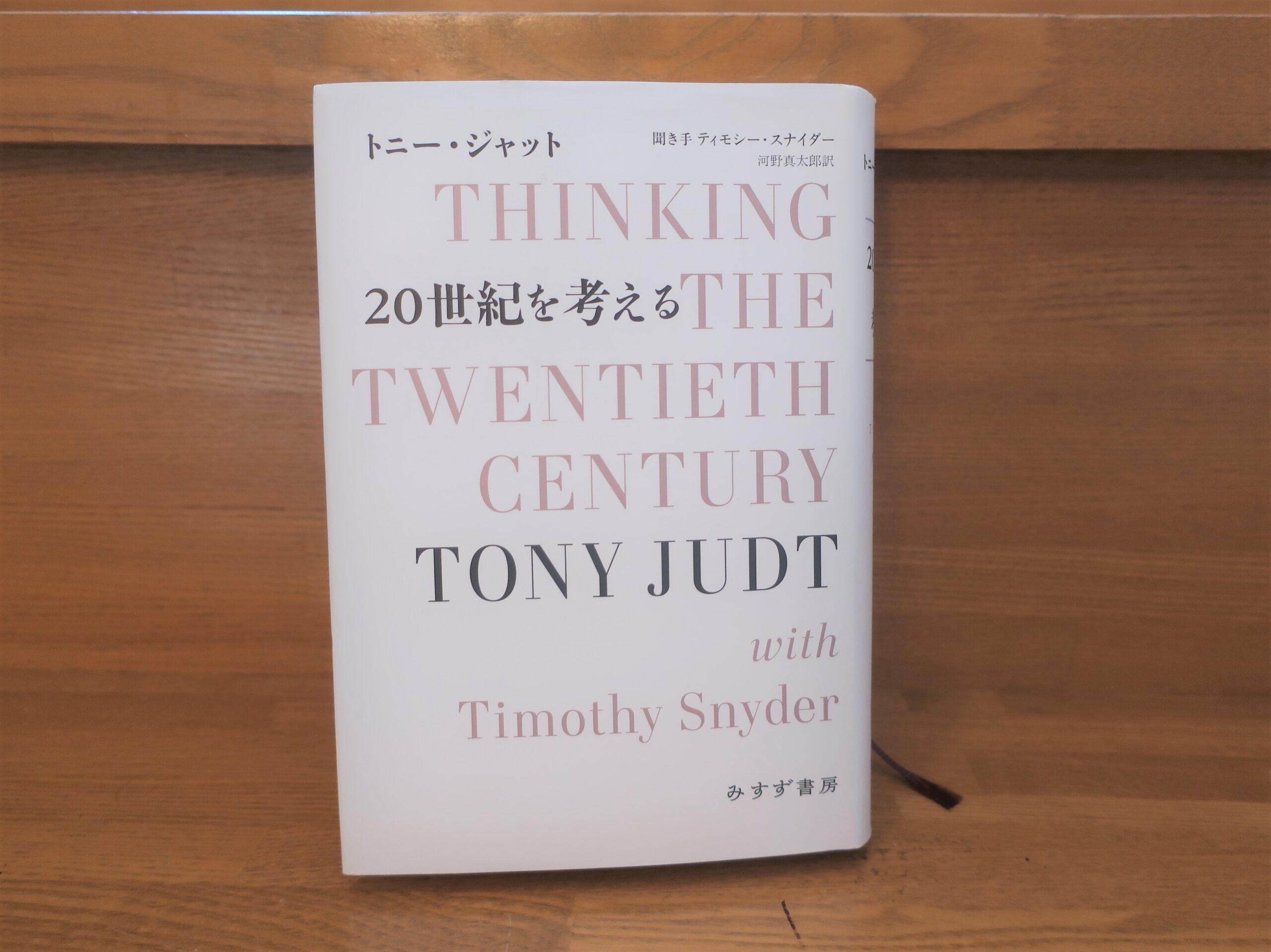
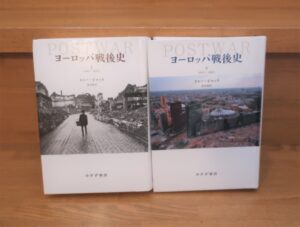
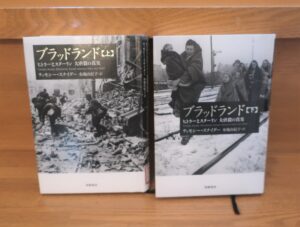
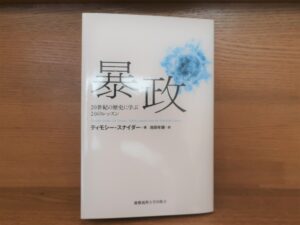
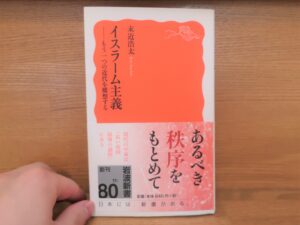
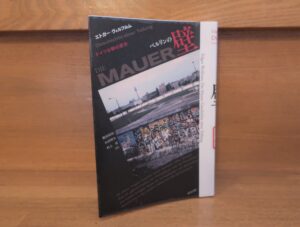
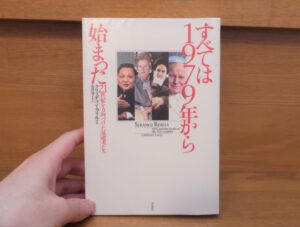

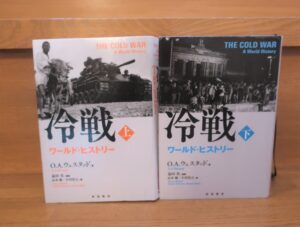

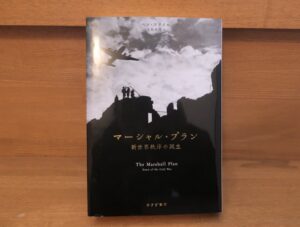
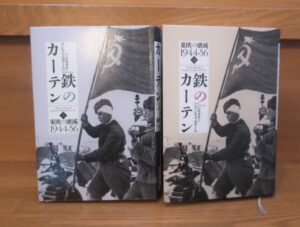
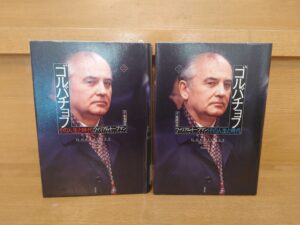
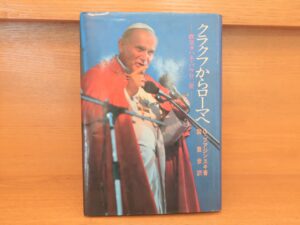

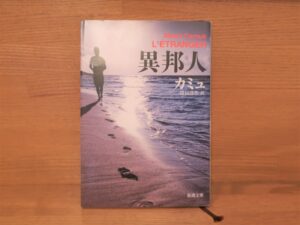
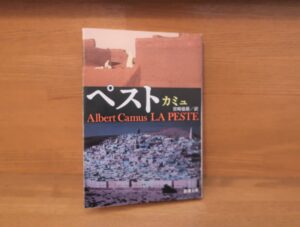
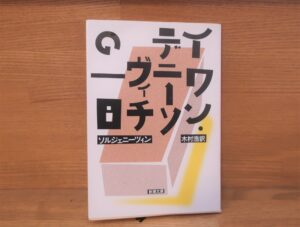
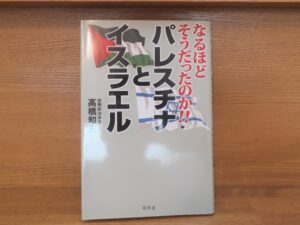
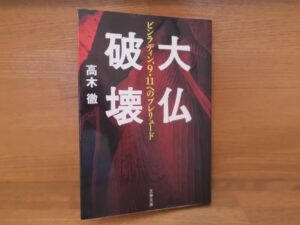
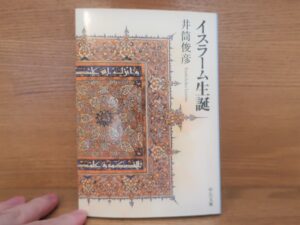
コメント